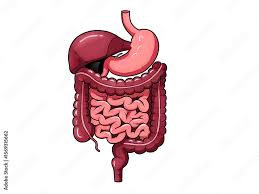Low Gastric Motility: Causes and Consequences
Low gastric motility refers to the slowed movement of food through the stomach and intestines. This condition can arise from several interconnected factors involving the heart, liver, brain, and digestive system.
Major Causes of Low Gastric Motility
-
Impaired Blood Circulation
-
Poor circulation from the heart to the intestine and gastric region reduces the oxygen and nutrient supply.
-
This weakens smooth muscle activity, slowing gastric motility.
-
-
Liver and Biliary Pathways
-
Disturbances in conjugated bilirubin flow from the liver into the intestine and mesenteric pathway can disrupt digestion.
-
This interference affects stomach function and motility.
-
-
Neuro-Hormonal Fluctuations
-
Gastric hormones regulated by the brain play a key role in stimulating stomach contractions.
-
Fluctuations or imbalances in these signals can reduce motility.
-
-
Duodenal Dysfunction
-
The duodenum is responsible for coordinating digestive enzyme release.
-
If it does not regulate amylase effectively, food breakdown slows, leading to gastric stasis.
-
-
Enzymatic Fluctuations in the Stomach
-
Variations in enzyme levels disrupt normal digestion.
-
This contributes further to delayed gastric emptying.
-
Consequences of Low Gastric Motility
-
Stomach Swelling (Distension): Food remains in the stomach longer, causing bloating and pressure buildup.
-
Cardiac Pressure: The distended stomach presses against the heart.
-
False Angina Symptoms: This pressure can mimic chest pain similar to angina, though not directly caused by heart disease.

